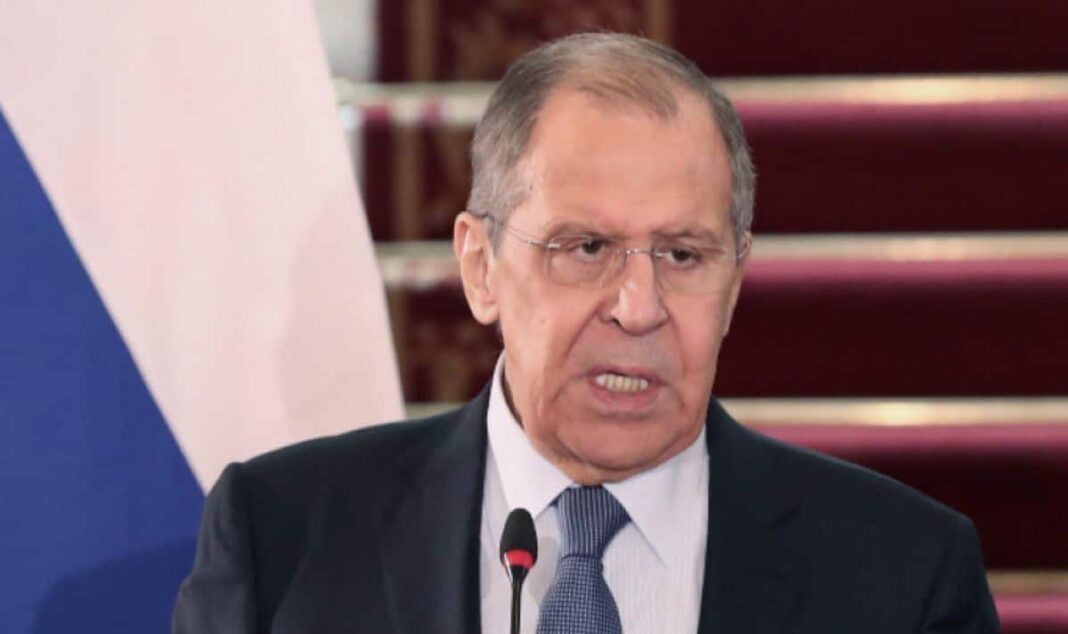Sofia has refused to sign new payment terms for Russian natural gas because it considers it at risk of losing control of payments and breaching its contractual obligations, a situation that Bulgaria and other EU member states are likely to face. at a time when Moscow wants to pay in rubles for the raw material, writes the financial publication “Financial Times”.
In an interview, Bulgarian Energy Minister Alexander Nikolov said the Bulgarian government had ruled in connection with the regular payment for Russian gas to be made this month that the legal risks were too great to accept the new payment system, which led to and until the suspension of gas supplies by Gazprom. “As in other countries in Europe the payment for Gazprom’s supplies is approaching, it is very likely that they will also face the same issue,” the minister said.
After the Bulgarian state-owned company Bulgargaz received an official letter from Gazprom Export outlining the new payment terms, “we asked for legal advice from an international company and assessed all the risks involved,” Nikolov said. He added that the risks were many and that if the letter was signed, it would change the existing gas supply contract, establishing a drastic change, including a new two-tier payment system.
Sofia has estimated that after the Bulgarian side deposits its payment in US dollars in the first account opened with Gazprombank, the bank will take control of the money and its conversion, putting it in a second account denominated in rubles. But there was no clarity about the exchange rate, Nikolov explains. “The Bulgarian side would effectively lose control of its money after making a payment in US dollars and would be at risk of breaching its obligations in the event of any omission or problem by Gazprombank in converting the amounts. “Bulgargaz would not have any evidence that it has fulfilled its obligations under the contract,” Nikolov said.
Bulgaria has asked Gazprom for clarification, while Bulgargaz has fulfilled its original agreement by paying $ 50 million to Moscow. But on April 26, Gazprom informed Bulgargaz that it would suspend supplies the next day and returned the money. Nikolov says that there was no possibility for Bulgaria to sign the proposed amendments to the agreement, because “If a person does that, he can be prosecuted for failing to protect state assets or a state corporation.”
Gazprom has not commented on the minister’s opinion. Earlier, Kremlin spokesman Dmitry Peskov said Russia remained “true to its contractual obligations” and added that “there can be no talk of any additional difficulties, complications or any de facto price change. due to, for example, exchange rate differences “.
Nikolov says the decision not to accept the Russian ultimatum was both political and economic. “Political and business decisions are exactly the same here,” he said. “One follows one’s own good will and financial intelligence”
Bulgaria is in talks with EU officials to find and finance alternative supplies, Nikolov added, adding that he expects an agreement within days.
Despite the urgency of the situation and high market prices in general, Nikolov says he does not expect a significant price increase.
Bulgaria is a relatively small market for natural gas with an annual consumption of 3 billion cubic meters. Its long-term contract with Gazprom was due to expire at the end of this year. Alternatives have already been prepared, including new supply routes through neighboring Greece for Azerbaijani gas through Turkish pipelines, as well as liquefied natural gas. Russia’s decision to cut off supplies has now accelerated those efforts, Nikolov said.
He added that Brussels should allow member states to buy gas in bulk, which will help lower prices and provide flexibility to avoid emergencies such as the one in Bulgaria. Nikolov says he is confident that the crisis will help Europe create a new gas supply regime faster and that the EU will emerge stronger from all this. “We have alternatives. The relevant infrastructure is in place. It is only a matter of negotiations,” he said.
Sergei Lavrov: If Bulgaria puts ideology above the interests of its people – this is its choice
The new gas payment scheme is needed to prevent “continued shameless looting by the West,” the Russian foreign minister said.
Most of Russia’s key partners have agreed to pay for natural gas supplies in rubles. The refusal of Bulgaria and Poland to do so is their choice, Russian Foreign Minister Sergei Lavrov was quoted as saying by BNR.
In an interview with Al Arabiya TV, Sergei Lavrov said Russia’s proposed new gas payment scheme was necessary to prevent “the West from continuing the shameless robbery.”
According to him, by freezing half of Russia’s foreign exchange reserves of $ 300 billion, Western countries have misappropriated the money they used to buy Russian blue fuel.
Until the end of March, European companies paid for the gas in dollars and euros, transferring the corresponding amounts to Gazprom’s accounts in Western banks.
The new scheme came into force on April 1st and envisions the dollars and euros going to Russian Gazprombank’s accounts, which will convert them into rubles on the Moscow Stock Exchange.
Bulgaria and Poland have abandoned the new scheme, and Gazprom has cut off gas supplies to them.
Sergei Lavrov believes that negotiations between Moscow and Kyiv on security guarantees could make significant progress if Kyiv was an “honest negotiator”. According to him, the Ukrainian representatives are constantly changing their positions.









